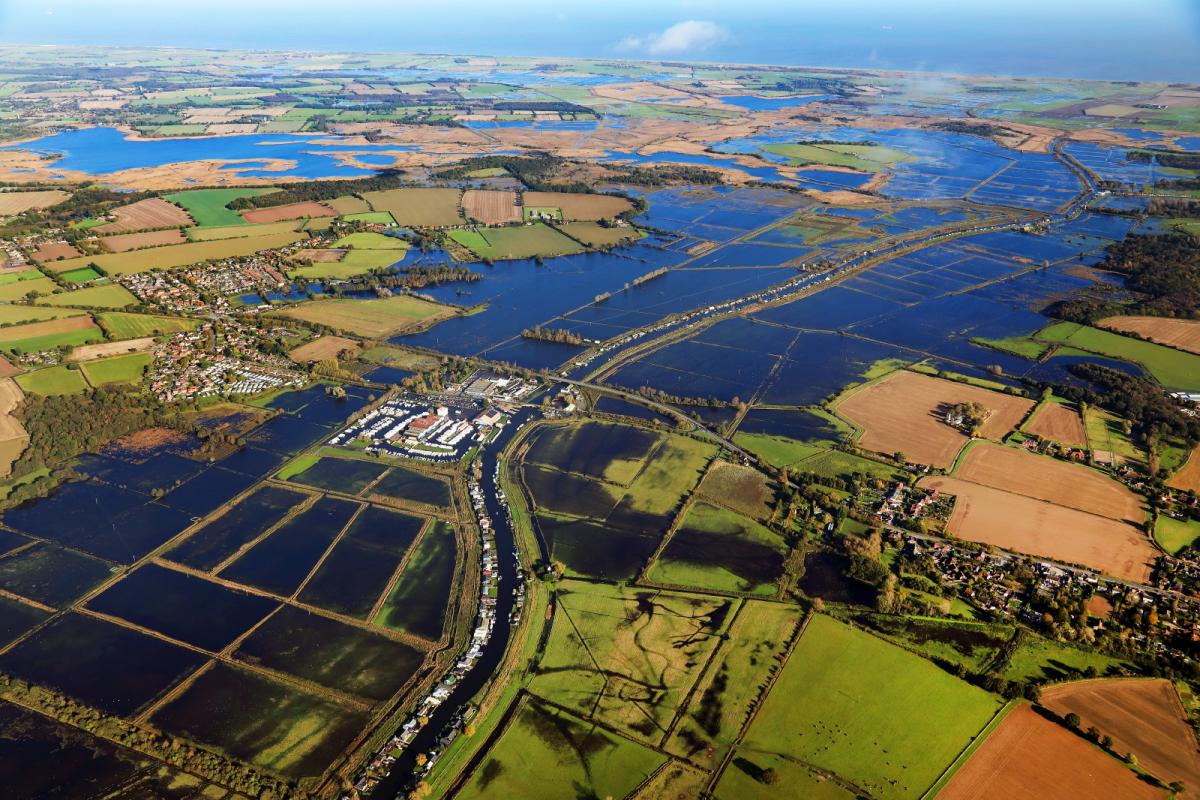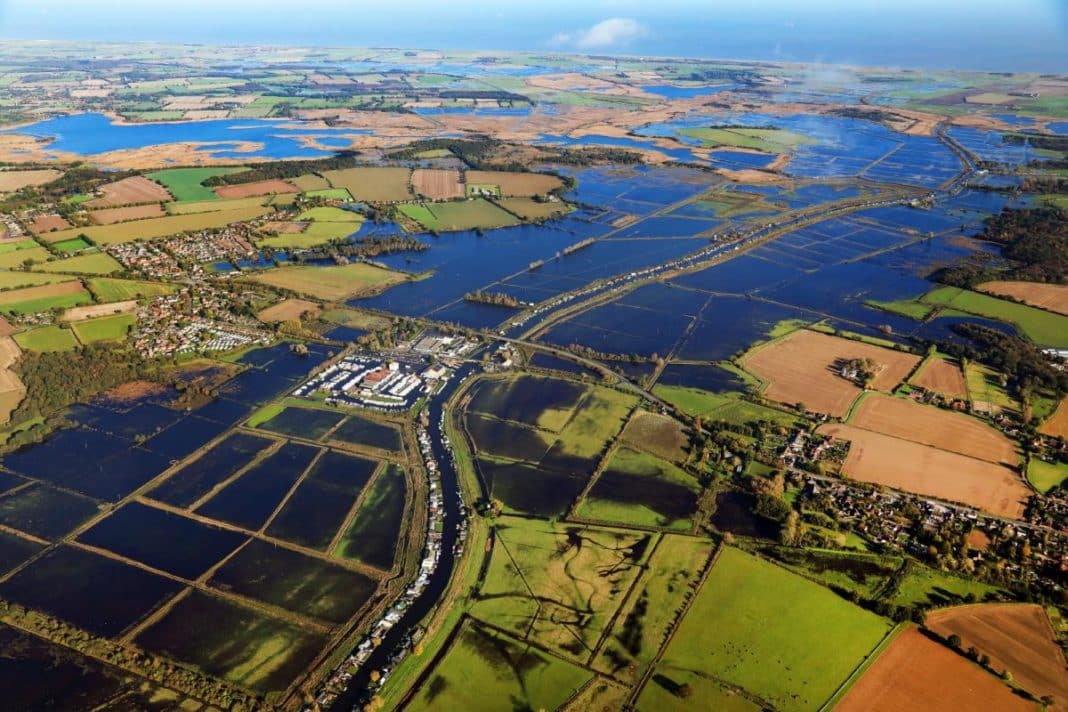Newspaper headline “Furious homeowners in great Yarmouth say new £121 million bridge is to blame for floods that left several villages underwater …”
Our experience with flooding has been less dramatic: It all started on one of those days without a care in the World. The sun was shining, sparkling and bright, through the wide-open patio doors, letting fresh warm air flow through the room.
In front of the television, on top of the polished laminate floor, lay a plain grey rug and as I walked over it in bare feet, I felt moisture in one small area.
Meg, our rescued Jack Russell, was following me as she normally does, and when I stopped to inspect the damp patch, she looked up at me with staring eyes as much to say that has nothing to do with me. Then getting a little closer to the spot sniffed at it by twinkling her nose, and she didn’t waste any time turning, slinking away with tail between her legs.
From our point of view, it was difficult not to think it had come from her, not knowing her exact age, other than she is getting elderly, we reasoned she must have been caught in an unexpected moment. It seemed the only answer as we had not knowingly spilt anything.
Over the next few days, the damp patch very slowly spread. No staining, just a clear wet patch, it was strange because the laminated coating on the floor around the rug had no sign of moisture.
The build-up, as I said, was slow, the damp patch got larger and although the floor below the rug was damp there was no sign of the water emanating from the spot.
We frequently looked up at the ceiling to see if the liquid was coming from there, but not a sign of anything that would suggest a leak in the roof.
Suddenly, one morning we were greeted with a spray of water gushing up the wall, initiating from behind the unit close to the TV screen. We pulled the unit out and the spray stretched into the air arching over, a cascade of crystal-clear water.
Meg, who had been forgiven for the mystery dampness in the carpet, took one look with horror on her face, yapped at it, and then tucked her tail between her legs and ran out of the door, she was not going to get the blame for that. It was going to be a few days later before she would venture into the room again.
We discovered an obscure main water conduit we knew nothing of buried in the wall at floor level which had been leaking for some time, seeping out of the pipe into and under the laminated floor, before bursting open spraying its unsolidified fluid everywhere, coating the living room awash with unsoiled clear water. The clean-up and repair was going to take some time.
However, it was nothing like the situation experienced by Inhabitants who see their property flooded up and past ceiling level, needing more than a clean-up but a serious concentrated effort renewing the damages caused from the overflowing banks of a river, which would also include sludge, garbage and raw sewage pouring out of the drains that cannot cope with the deluge.
Water, a constant need, for it is life, and yet out of control it’s a fluid of horror.
Flooding has been a frequent and constant news item, people’s swamped property portrayed as soon as there is any unusual weather. We are told some houses have had the problem repeated time and time again when their local river overflows.
I am not sure when rules were issued, but it was some time in the distant past, when the UK was a member of the EU, which sent out a Directive to restrict dredging of rivers to protect the tiny living creatures that survive by making a home in the bottom of the flowing waters. The Environmental Agency was made responsible for the policing of this act.
Now I know nothing about what happens at the lower end of a river, but I do know if you are digging in the garden and destroy an ant’s nest or disturb a worm in its daily activity then either of them leave very quickly and take up residence somewhere else. I am sure the little things living on the bottom of rivers and lakes would be doing the same if disturbed.
Before this directive by the EU, landowners and others have known for hundreds of years that waterways and rivers must be kept clean by dredging and in the past farmers carried out this work, because without being cleared, over time, sludge and silt builds up and the causeway is unable to cope with any unusual additional water.
So there we have the Environment Agency, controlling these waterways, which these days they are probably doing working from home, and the nearest they get to a river is maybe studying the sediments on a fancy fish tank they have in the living room, and yet in Yarmouth they approved spoiling the river bed and the homes of the wiggly things that live there, to build two piers so a road could be constructed, which also reduced the flow of water, causing flooding to villages up stream.
But when Mr Price of Herefordshire used a JCB to clear the rotting foliage and silt so that the water could flow more freely and help in prevention of flooding to the local area they got the rulebook out and decided his action was illegal. He was deprived of his liberty for twelve months and fined over half a million pounds.
It seems to me that any farmer or landowner would know about the environment they live in far better than someone with a white collar. In my view, Mr Price has been treated very badly. Take care.
www.facebook.com/percy chattey books.







